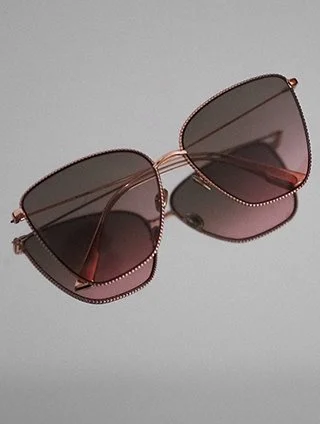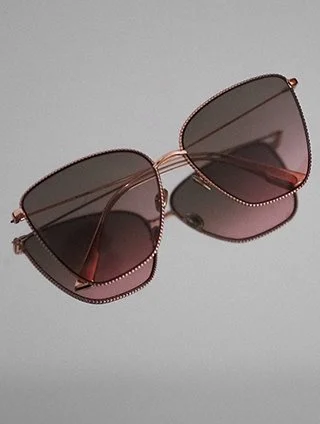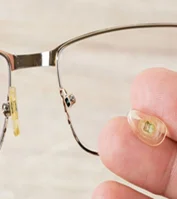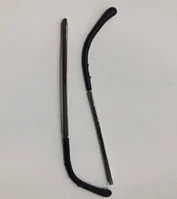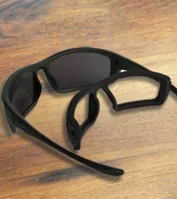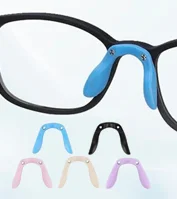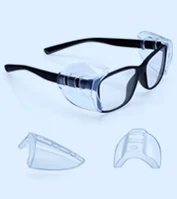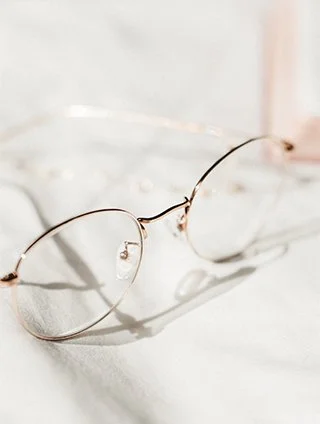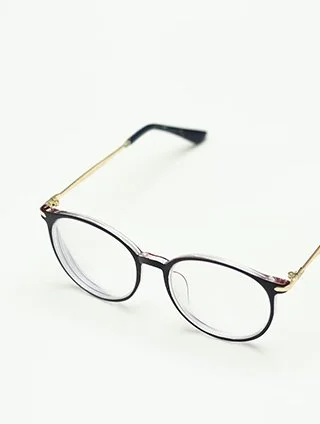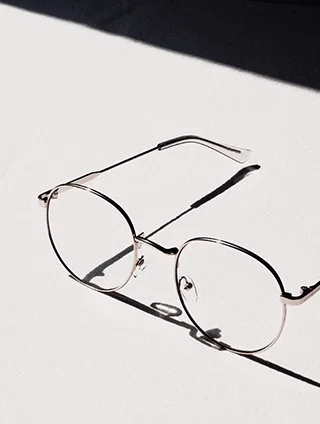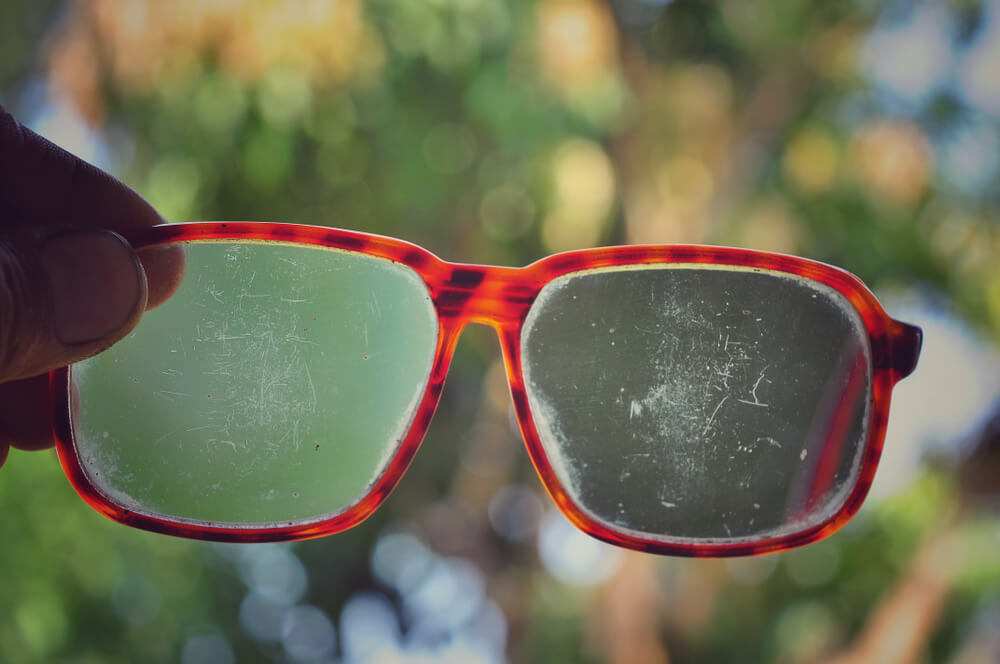Last updated: Wednesday, July 23, 2025
When your crazed lenses prevent you from seeing the world the way others do, it is just incredibly annoying. However, those who wear prescription sunglasses will connect to this better. The picture and your attitude are both blurry because of lens crazing. The obsession with spectacles is just one of the numerous issues that people who wear lenses deal with. Not only may crazing cause blurred vision, but it can also harm your eyes over time. It's important to remember the significance of lenses when people frequently switch up their frames to correspond with the newest styles in eyewear. Here is everything to know about eyewear crazing, and how should handle it.
What are Crazed Lenses?
Did you know that anti-reflective coating, sometimes called anti-glare or AR coating, is applied to every lens in eyeglasses? If you use glasses regularly, you must be aware of this! Because anti-reflective coating has so many advantages, it is coated on the lenses. It shields and keeps reflections out of your eyes. Not to mention, your spectacles seem stylish. The only drawback of anti-reflective coating is the spectacle craze.
It is a network of tiny fissures that are not readily apparent, but if you look closely, you can see that the anti-reflective coating has many of them. We name this network of fissures Crazing. It might also be referred to as lens cloudiness. Looking through Crazed lenses is often bad for the eyes. Therefore, it is advised to give lenses that have been treated with an anti-reflective finish particular attention and care.
What Causes Your Glasses to Crazing?
Your beloved pair of Tommy Hilfiger may be crazing for many reasons. Out of these, we're attempting to mention a few majors here.
- The primary cause of the cracking is the incorrect or negligent use of an anti-reflective coating on lab lenses.
- Scratching can also occur when lenses are cleaned with materials that are hard, abrasive, or spiky. It is common during hectic days for us to clean the lenses with any available cloth or shirt sleeves.
However, if you have already started practising this, you should stop. You can purchase a variety of lens cleaning solutions to avoid this.
- Temperature variations may also cause the anti-reflective coating to shrink or expand.
- Rubbing sharp things or glasses on rough surfaces regularly can cause crazing.
- Extreme heat exposure, such as when wearing them while welding, may also be a contributing factor in crazing.
It is not surprising if you find minor fractures on your designer eyeglasses for no apparent cause. That might have been a manufacturing problem.
Do Transition Glasses Become Crazed?
If transition lenses are subjected to heat for an extended period, crazing may develop on them. Hold on! You would be mistaken to believe that we are advocating against wearing spectacles outside on a hot, sunny day. Normal vision will not reveal it, but it is discernible when one looks closely. Although there aren't any such limitations, protecting the lenses from blistering temperatures will be beneficial. Therefore, yes, there is a risk that it will be crazy if the lenses have an anti-reflective coating.
What Effect Does Heat Have on Lenses?
When anti-reflective coatings are exposed to abnormally high temperatures, they begin to shrink or expand. The degree of heat determines how quickly something expands or contracts. Besides crazing, the following negative consequences of heat exposure on lenses include:
- Softening of plastic frames.
- Warping of the lenses of glasses.
- Damage to the polarized sunglasses' film.
How, therefore, may heat damage be prevented?
Never wear your Guess glasses in extremely hot conditions, and never leave them in a hot car. If your optician plans to fix your glasses with a frame warmer, you might also wish to discuss crazing with them. Crazing on protected lenses can be a result of frame heaters.
How to Recognize Crazing?
Crazing could be the reason if you find that, in your freshly purchased glasses, your vision is suddenly less clear. To discover a solution and get your vision back, verify the lenses for tiny cracks and get in touch with the optical shop or eye specialist where you bought the glasses.
How Can Crazing Be Avoided?
The best course of action is to stay away from all of the factors that can lead to craziness.
- Consistently take good care of your eyeglasses.
- When not in use, store your Nike prescription eyeglasses in a secure location rather than leaving them lying around. To store glasses, use sturdy cases.
- Use warm water to lightly wash away dust and debris whenever you consider cleaning it.
- Use cotton handkerchiefs or soft fabric cloth. A specialized lens cleaning cloth provided by your opticians is another option. There are a lot of lens cleaning sprays available on the market.
How Can Crazy Lenses Be Fixed?
Certain optical labs and eye care specialists can eliminate solutions that may be utilized to remove crazing and peel the reflective layer from lenses. Consult your optician to determine if this is a suitable answer for you, as many online stores do not provide this type of service, and it is not always a choice. The lens and treatment used will determine the specific results, and high-index or polycarbonate lenses may not have the AR coating removed.
Verify warranty still covers your lenses; some warranties include coverage for crazing brought on by production flaws. For example, accidental crazing—leaving glasses in an overheated vehicle — will not be covered by your warranty. Every pair of glasses at EyeWeb is covered by a 24-month guarantee. If there was a manufacturing flaw that led to your crazing, it should have shown up within the initial six months.
Does Crazing on Glasses Fall Under Warranty Protection?
There is often a 1- to 2-year manufacturer's warranty for prescription eyewear. Crazing resulting from a manufacturing flaw is covered by certain warranties and is expected to manifest itself within the initial 6 months of regular use. This implies your guarantee might not cover that crazing brought on, say, by keeping glasses in a hot vehicle. Be advised that certain stores can charge you an extra fee to have your distorted lenses fixed or replaced.
Lens Crazing
Avoiding an anti-reflective coating doesn't mean that your lenses will go crazed. Many advantages come with an anti-reflective coating. Keep your contact lenses secure, keep your glasses away from intense heat, don't leave your eyeglasses in a hot car, and clean up any dirt or debris to prevent crazing.
Although manufacturing defects can cause crazed lenses, human error is most frequently the cause. Avoid crazing by paying attention to and taking extra care of your glasses' lenses.




